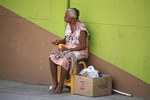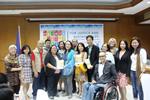Social Watch E-Newsletter - Issue 264 - July 8, 2016
Published on Fri, 2016-07-08 08:48
 |
| Issue 264 - July 8, 2016 |
|
|
Social Watch reports
Spotlight report on the 2030 Agenda
|
|
|
| |
|
| |
 |
Can the 2030 Agenda be achieved without a global approach to taxes? Can it be assessed without promoting human rights and addressing the responsibilities of the rich and powerful? Can it be reviewed without looking at climate change, illicit financial flows, conflicts, and trade and investment agreements? Can it be measured with a single number? with 300 of them? or we need a new kind of dashboard to monitor sustainability? These and other questions have been tackled by a global alliance of civil society organizations and networks in their first "Spotlight Report." The report will be launched on Monday, July 11 in New York, during the deliberations of the High Level Political Forum on sustainable development. Several country reports are being launched simultaneously in New York and in many capitals. The Spotlight report reviews obstacles to the fulfilment of the 17 goals, with inputs from civil society reports from around the world, focusing on inequalities, means of implementation and systemic issues. It is published by Social Watch, Third World Network, DAWN, ANND and Global Policy Forum, with support from the Friedrich Ebert Stiftung and contributions from a dozen of civil society international networks. Read here the information of the side events |
|
| |
|
| |
|
| |
Philippines: Reverse the path
|
| |
|
| |
While more than 26.3 percent or about 27 million Filipinos live in poverty, the benefits from growth are concentrated in the hands of few billionaire families, the less than 1 percent who dominate the political economy. Tax injustice is imbedded in the system and unregulated corporate activities harm people and the environment. The Philippines can reduce inequality by changing the economic geography. We can reverse the big city-oriented development by supporting the provincial and local economies. We can do this by shifting from conventional, fossil fuel-intensive farming to organic and sustainable agriculture and by changing the pattern of public expenditure so that adequate resources, and authority, too, are deliberately transferred from the rich regions to the poorer ones. Read more
|
| |
|
| |
|
| |
Cyprus at the crossroads
|
| |
|
| |
Cyprus is situated in the intersection of Africa, the Middle East and Europa. However, instead of the more nuanced and fluid identity required for the country to be a truly multicultural society, public and private discourses are polarized, traditionally between Turkey and Greece and, since the banking crisis of 2015, between those defending public welfare spending and the power of labor unions and the advocates of free market neoliberalism and limited government. The 2030 Agenda risks confronting a long established inertia on the part of the Government with regard to non-binding agreements and will likely be opposed by the corporate sector, as it will be assumed that the ethical standards, like due diligence and minimization of carbon footprint, will increase their operational cost or lower the demand. Read more
|
| |
|
| |
|
| |
Peru: The economy grows but quality of life decreases
|
| |
|
| |

Photo: Alex E. Proimos (CC/Flickr)
|
Peru has experienced sustained economic growth, due largely to rising prices of gold, copper and other minerals, but virtually the entire territory has been given in concession to mining, oil, and logging companies, frequently in conflict with local populations. Income poverty has decreased, but multidimensional poverty has worsened. Progress has been made in circulation of money and electronic and telephone connectivity, but there has been a decline in quality of life and public safety, as increased levels of crime is taking over streets and cities and corruption resulting from the influence of corporate power reaches every part of the government. Read more
|
| |
|
| |
Social Watch starts publishing country reports 2016
Social Watch coalitions around the world are contributing their assessments and reports to the global Social Watch report 2016, under the overall theme Goals for 2030... and obstacles to getting there. The Social Watch network thus joins the current global discussions around a set of Sustainable Development Goals (SDGs) and on a new development framework and the need for civil society monitoring.
The Social Watch national platforms are independent coalitions of civil society organizations struggling for social and gender justice in their own countries. The Social Watch network has been publishing since 1996 yearly reports on how governments implement their international commitments to eradicate poverty and achieve equality between women and men.
|
| |
|
| |
|
| |
 |
Signing up to the promise of a Philippines where no one is left behind and following the path to sustainability, Social Watch Philippines (SWP), along with the CSO contributors from its network, presents on Friday the "Spotlight Report" on the 2030 Development Agenda in a dialogue with the National and Economic Development Authority (NEDA) at SEAMEO-Innotech, Quezon City.
The Philippine economic growth is unjust and not sustainable, as the nation's wealth is concentrated among few billionaires and highly dependent on fossil fuels, according to Social Watch Philippines. "A just and sustainable growth ensures that no one is left behind," Isagani Serrano, SWP co-convenor and Philippine Rural Reconstruction Movement president, said on Friday.
The civil society group noted the Philippines can achieve its sustainable development goals by 2030 if the economic growth is not concentrated in the hands of a few billionaires. Read more
|
|
| |
|
| |
|
| |
In all societies, from Northern Europe to South Saharan Africa, there are people that are so isolated, excluded and impoverished that they live in a state of extreme poverty that is passed from one generation to the next. They do not only live in material deprivation but also lack political voice and social capital and for these reasons they are often neglected or overlooked by politicians, service providers and policy-makers. The obstacles that maintain them in poverty are therefore never properly understood nor addressed, with the result that the human rights violations that are the cause and the consequence of their extreme poverty continue unabated, and that the human capital they represent continues to be wasted. Read more
|
|
| |
|
|
|
| |
|
SOCIAL WATCH IS AN INTERNATIONAL NGO WATCHDOG NETWORK MONITORING POVERTY ERADICATION AND GENDER EQUALITY Social Watch >>
Social Watch E-Newsletter For comments, sugestions, collaborations contact us at: socwatch@socialwatch.orgTo stop receiving this newsletter send a message with the subject "unsubscribe" to: socwatch@socialwatch.org |
|
|
|
SUSCRIBE TO OUR NEWSLETTER
Submit
|
